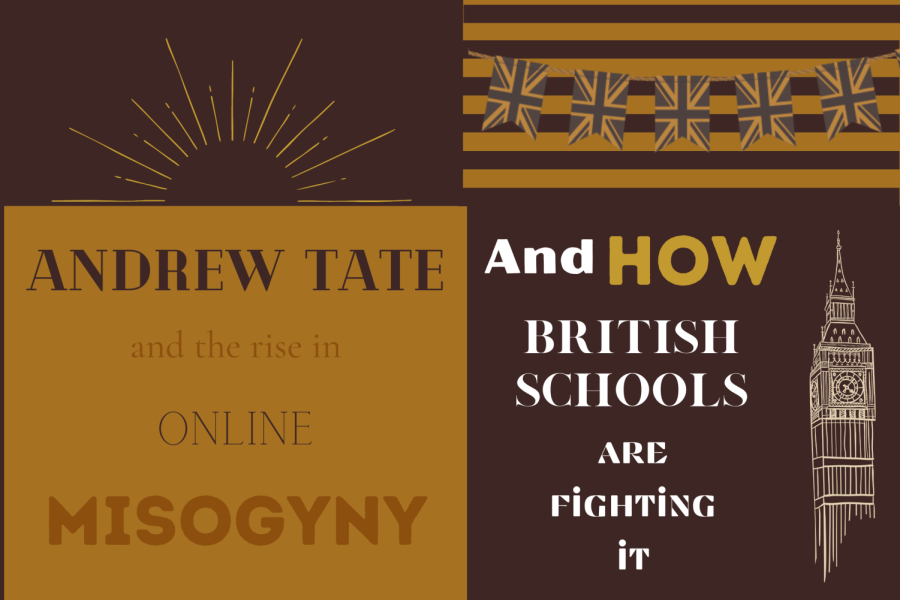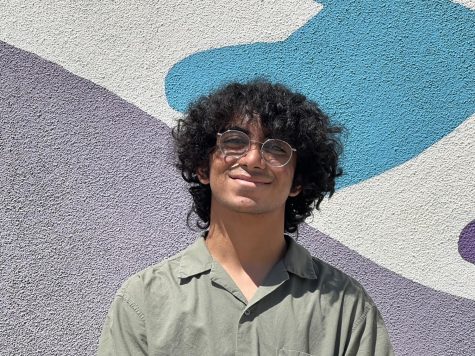How the British are fighting Andrew Tate’s views and how we can do the same
Andrew Tate and his brother were recently imprisoned by Romanian authorities.
February 27, 2023
It has been two months since conservative online media personality Andrew Tate was arrested by Romanian authorities in suspicion of sex-trafficking and rape amongst other allegations.
Now, several international entities- chief amongst them the British Department of Education- are leading an effort to curb the man’s widespread influence on young men across the globe.
“What is occurring is a perfect example of Hegel’s Dialectic…Tate’s message is so widespread because it is a pushback against other narratives in society and that resonates with some people,” said Bee Benson, World History and Civics teacher.
Tate has had a long history with misogyny- He was banned from Twitter for saying women “bear responsibility” for being sexually abused, and has voiced his opinion on strict gender roles multiple times, claiming that women are “given to the man” and thus “belong to the man”.
“People often find things to get behind like ‘mens’ rights’ and ‘male empowerment’, everything that is remotely reactionary to feminism, to feel a sense of superiority,” said Julianna Diwa (‘24).
In a since-deleted page on his website Tate detailed how he would “meet a girl”, “get her to fall in love with [him]”, and then “get her on a webcam”. Accusations of human trafficking drove the man into hiding in Romania last year.
“We should teach more about trafficking in school. I feel like people take it too lightly at times, so they aren’t putting much weight on the accusations against Tate,” said Catie Xun (‘23).
Despite his high-profile arrest, Tate’s online presence and influence on impressionable young men is only getting more significant by the second.
Charlotte Carson, an English secondary school teacher who was interviewed by the BBC this month, said some of her male pupils admire Andrew Tate- in fact, one pupil told her they would still admire the man despite his arrest.
“Things are getting more progressive…more liberal…some men believe that these changes signify that they are being oppressed, maybe feel like their own rights are getting trod upon,” said Diwa (‘24).
To weaken Tate’s misogynistic hold on young men around the nation, British schools are implementing lessons and holding discussions on the dangers of online misogyny.
In fact, the British Department of Education says that it has “published guidance” on how to be alert against strict gender conservatism and stereotypes in schools across England this month.
“Encourage them to question everything they’re seeing online, and where it’s come from – especially when it feels like it’s deliberately being pushed to them,” said Marianna Spring, disinformation and social media reporter at BBC.
The necessity of combating online misogyny has been highlighted by the rise of Andrew Tate. American schools need to follow after British schools and take affirmative action or else risk letting disillusioned adult males into the workforce.
“Friends need to hold each other accountable…not with anger or “canceling” but through dialogue,” said Benson.
Tate’s meteoric rise to stardom is unsurprising. In a world where everyone is interconnected within a web of online media, the voice of one man can be amplified beyond reason if he panders to the right demographic.
“I feel like social media algorithm makes it really easy for people to fall down the Andrew Tate pipeline,” said Xun (‘23).
Thus, while it is up to the individual to be swayed by social media personalities, we must take collective action as a community to ensure that in today’s digitally connected society, no one man has enough power to manipulate the beliefs of countless others.
“It can be hard to get caught up in your own viewpoints, so in that way, you should be made aware about his views, so that you can find the faults in them,” said Diwa (‘24).





